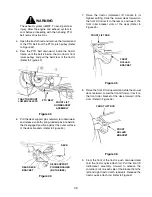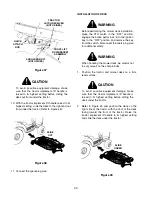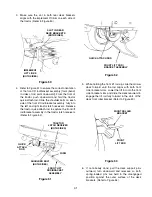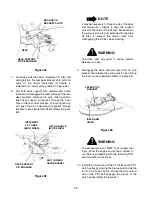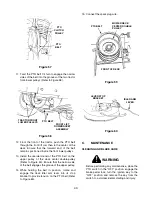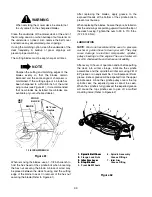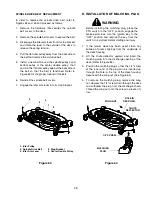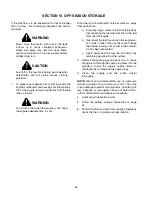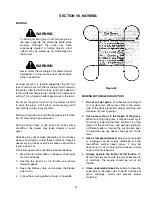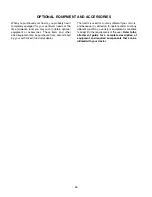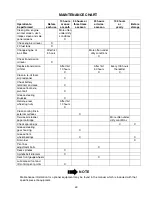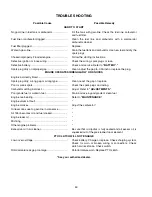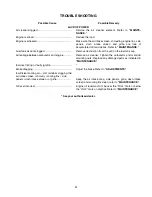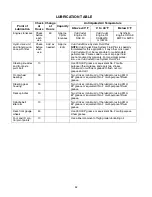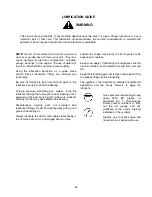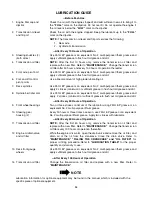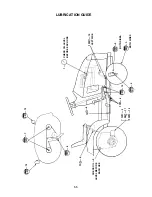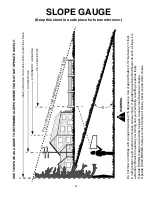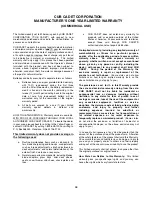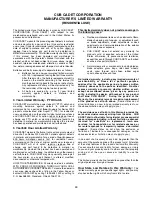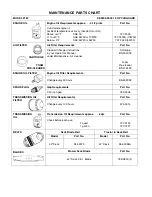
53
LUBRICATION GUIDE
The service life and reliability of any machine depends upon the care it is given. Proper lubrication is a very
important part of that care. This lubrication schedule reflects the minimal requirements to maintain the
equipment. More frequent inspections and maintenance is preferable.
NOTE
: We do not recommend the use of a pressure
washer or garden hose to clean your unit. They may
cause damage to electrical components; spindles;
pulleys; bearings; or the engine. The use of water will
result in shortened life and reduce serviceability.
Using the lubrication illustration as a guide, make
certain that all lubrication fittings are installed and
functioning.
Be sure all fittings are free from dirt and paint so the
lubricant is certain to enter the bearing.
Using a pressure lubricating gun, always force the
lubricant through the full length of each bearing until it
emerges at the end, carrying with it the worn lubricant
and any dirt that may have entered the bearing.
Miscellaneous working parts not provided with
lubrication fittings should be oiled regularly with a good
grade of lubricating oil.
Always lubricate the tractor thoroughly before taking it
to a remote location for a prolonged period of time.
Lubricant is cheap. Use plenty of it. Worn parts can be
expensive to replace.
Keep your supply of lubricating oil and grease stored in
clean containers, and covered to protect from dust and
dirt.
Keep the lubricating gun nozzle clean and wipe dirt from
the grease fittings before lubricating.
The symbols in the illlustrations indicate the method of
application and the hourly intervals to apply the
lubricant.
Use a pressure lubricating gun and
apply 251H EP grease (or
equivalent No. 2 multi-purpose
lithium grease) sufficient to flush
out the old grease and dirt.
Lubricate at the hourly intervals
indicated on the symbols.
Dipstick, use to check engine and
transmission oil before each use.
WARNING

